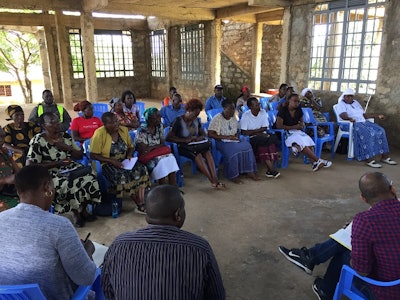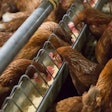
The egg sector needs more women, and it needs to see them with greater empowerment.
Globally, women still represent only approximately 30% of the total agricultural workforce. In a number of developing countries, more women than men are employed in agriculture, according to data from the United Nations Food and Agriculture Organization (FAO) and the World Bank, however, in wealthy nations, the percentage varies between 20% and 40%.
In North America, for example, women’s participation in agriculture decreases with latitude. In Canada women make up 31.6% of the workforce, while in the U.S. the figure falls to 26.5%, and falls further still in Mexico to 11.5%.
A further example can be seen at the International Egg Commission (IEC), the global egg industry’s representative body, where sector experts compile production and consumption data from their respective countries.
Of the 40 IEC rapporteurs, 11, or 27.5% are women, which is in line with the typical representation of women in each member’s agricultural sector.
At a national level, most egg producers’ associations are still led by men. However, one long-standing exception is the leadership assumed by women of the America Egg Board.
The absence of women in top farm management positions is evident on most continents, despite the majority of egg farms being family-owned enterprises.
More women are now involved in veterinary science and agricultural studies, in both developed and developing countries. In some developing countries, the role of women in agriculture is predominant, particularly where raising poultry and small ruminants are concerned, however, they remain at a disadvantage to men.
The egg sector must do more to attract and retain women in the industry.
Countless studies by the World Bank and various non-governmental organizations have found that a lack of access to farm inputs, for example feed and vaccines, and technical support reduces female's productivity by about 30% compared to males.
It is also worth considering that, during farmer discussion groups in Kenya and Bangladesh, women looking after laying hens have expressed concerns that men would take over their egg businesses if they became too successful.
Greater efforts are being made in some other agricultural sectors to welcome and empower women and the egg sector must follow suit.


















